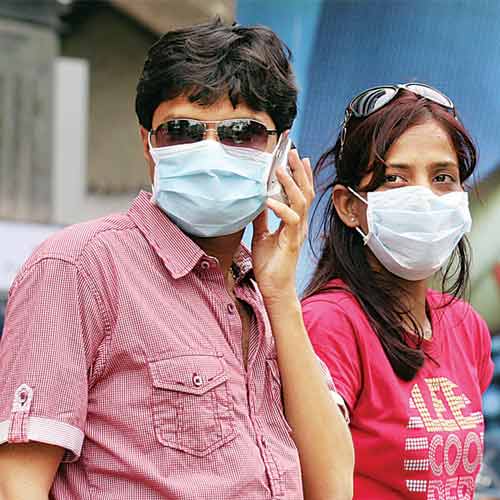
Doctors sound alarm bells, caution people returning from Middle East.
With the Middle East Respiratory Syndrome Coronavirus (MERS - CoV) killing more than 40 people across the globe, especially in Saudi Arabia, and the threat of the swine flu-like virus spreading in the air looming large, doctors in the city have sounded alarm bells for those returning from Gulf countries.
However, doctors said it does not seem like a major health risk for Indians at the moment.
“In July there are heavy rains across the country. Most air-borne viruses get washed away in the heavy rain. However, persons with travel history to Saudi Arabia and neighbouring Middle East countries should take extreme precautions,” said Dr Hemant Thacker, physician at Breach Candy Hospital.
The Union health ministry had issued a circular (received by the Directorate of Health Services in Maharashtra on July 11) stating that MERS virus has become a global threat and patients with travel history to the Middle East, China and Taiwan who show signs of respiratory discomfort should be reported and kept under surveillance. The state has further disseminated the circular to strengthen surveillance to civic bodies in every district, including Mumbai.
“We have not seen any cases of MERS in the country. In fact, the swine flu virus has also not been reported this year in Mumbai. But, any traveler who has been to Saudi Arabia and the neighbouring countries or the Far East has been experiencing prolonged periods of cough or cold needs to be reported to the civic body by the treating physician. We have been asked to isolate such patients and send their samples to National Institute of Virology in Pune for tests,” said Dr Mangala Gomara, BMC epidemiologist.
Doctors said influenza virus strains undergo deadly mutations in as less as every six months and the stronger strains do not respond to older anti-virus treatments.
“Any prolonged cough or cold that is not responding to antibiotic treatment till four days needs to be reported to a physician. There is no specific treatment. A patient may improve with supportive therapy or the health may worsen and secondary conditions like pneumonia and bacterial infections may develop. The patient may also go on ventilator support and require intensive care,” said Dr Chetan Velani, a Ghatkopar-based physician.
“We are yet to receive the circular from the BMC. If there is anything suspicious reported we will send the phlegm samples from trachea after conducting test to NIV in Pune.”
What is MERS?
Middle East Respiratory Syndrome (MERS) is a viral respiratory illness first reported in Saudi Arabia in 2012.
The illness is caused by a coronavirus called MERS-CoV.
People having MERS-CoV infection develop severe acute respiratory illness – fever, cough, and shortness of breath.
This virus spreads from infected people to others through close contact.





0 comments:
Post a Comment